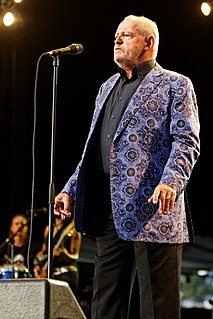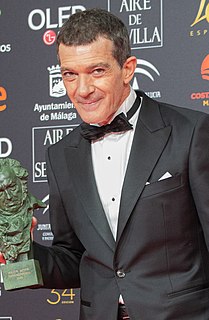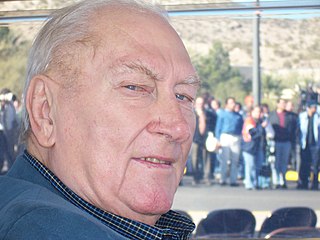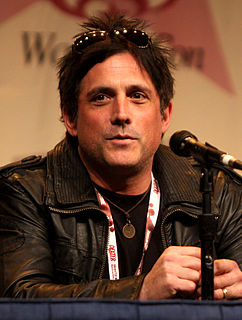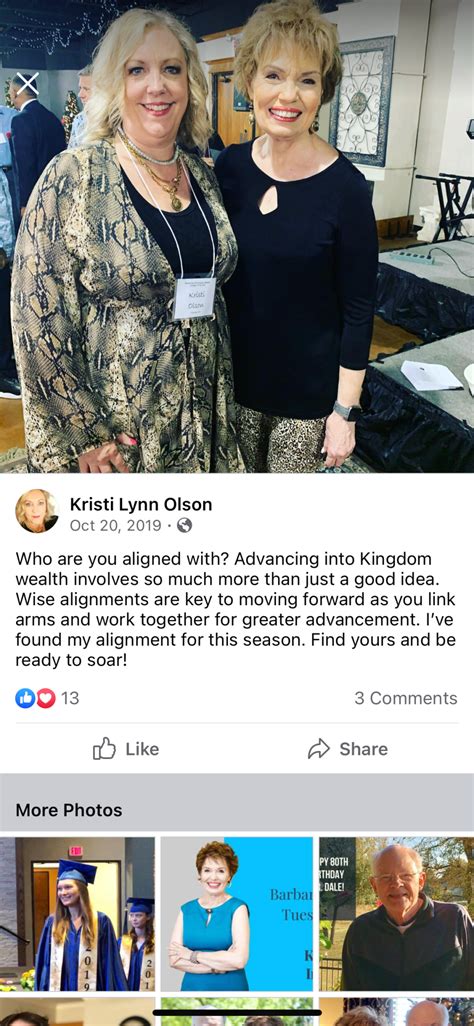A Quote by Nell Scovell
When you start a memoir, you think, 'I'm going to blast all the people who were mean to me.' And then you start writing, and you go, actually, it's so much more fun to say nice things about people who were kind and generous to you.
Related Quotes
There are no atheists in foxholes, they say, and I was a foxhole atheist for a long time. But after going through a midlife crisis and having many things change very quickly, it made me realize my mortality. And when you start to think about death, you start to think about what's after it. And then you start hoping there is a God.
There have been times in my adolescence where I gave up. I was like, 'I'm just never going to be pretty. I'm never going to be like one of those people on the front of magazines.' It always seemed really strange to me that the projection of how people are in advertisements looked nothing like the people who were actually buying them. You know what I mean? I never understood that mismatch, and now I really start to see that the people you see in the media are a lot more like people actually are.
And it's kind of my own fault too, in the sense that I've used my own life as a literary device so much. I think people feel very comfortable reviewing the idea of me, as opposed to what I've actually written. I find that most of the time, when people write about one of my books, they're really just writing about what they think I may or may not represent, as sort of this abstract entity. Is that unfair? Not really. If I put myself in this position where I'm going to kind of weave elements of memoir into almost everything, well, I suppose that's going to happen.
There's no doubt about it: fun people are fun. But I finally learned that there is something more important, in the people you know, than whether they are fun. Thinking about those friends who had given me so much pleasure but who had also caused me so much pain, thinking about that bright, cruel world to which they'd introduced me, I saw that there's a better way to value people. Not as fun or not fun, or stylish or not stylish, but as warm or cold, generous or selfish. People who think about others and people who don't. People who know how to listen, and people who only know how to talk.
I think people feel very comfortable reviewing the idea of me, as opposed to what I've actually written. Most of the time, when people write about one of my books, they're really just writing about what they think I may or may not represent, as sort of this abstract entity. Is that unfair? Not really. If I put myself in this position where I'm going to kind of weave elements of memoir into almost everything, well, I suppose that's going to happen.
I really did not think a thing about playing five black players to start the game; they were our best players and deserved to start. But if I knew all the misery it was going to cause me in the weeks following the game, I'd have thought long and hard about it. The players from Kentucky were gracious about it, but many of their fans and people from other parts of the country did not want to see it.
Overcomers have a 'finishing' anointing. They don't merely start things. They keep on moving forward until they complete the task. Many people love to start new things. They like to be creative. They enjoy thinking of new projects and dreaming about new adventures. Often, these people actually start some of the new things they are planning for the future. The problem is that they seldom finish what they start.

